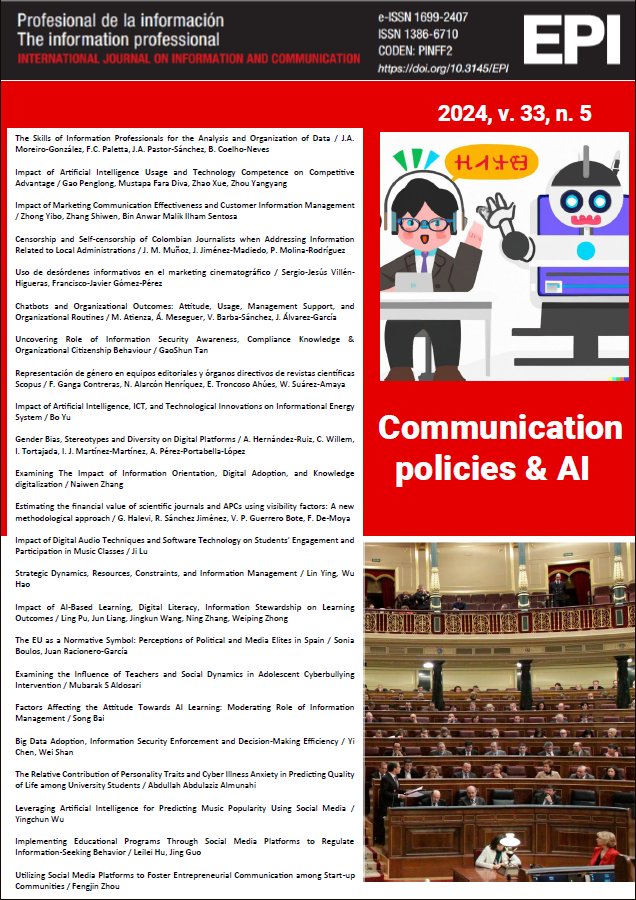Gender Representation in Editorial Boards and Governing Bodies of Scopus Scientific Journals: Analysis for Different Areas of Knowledge
DOI:
https://doi.org/10.3145/epi.2024.0508Keywords:
Consejo editorial, Liderazgo femenino, Gerencia de revistas, Gestión de organizaciones, Liderazgo en la academia, Cargos directivos, Brechas de género, Segregación ocupacional, Subrepresentación de mujeres, Cuerpos colegiadosAbstract
Despite efforts to achieve gender parity in multiple organizational spheres, women remain underrepresented in leadership positions, including in the scientific field. This study aimed to analyze gender representation on editorial boards of journals indexed in Scopus, focusing on the positions they hold to uncover potential inequalities. For this purpose, documentary research was carried out, employing secondary data sources, such as article reviews, databases, and journal websites. The data for the analysis was collected from the Scopus database on March 16, 2022, obtaining 27,060 records. Subsequently, a filter was applied to select journals in which at least one of their publication languages was Spanish (n=824), regardless of their country of origin. The results showed that slightly more than a quarter of the journals with editor positions had female leaders, and all other positions, except for secretary and editorial assistant, were male-dominated. In the main subject areas of Scopus, the position of director and/or editor showed a male predominance of 65.2%, the most notorious being in the field of physical sciences. When analyzing collegiate bodies, it was observed that over 85% had a mixed composition; however, it was not feasible to find gender parity in their composition. The study findings revealed a lack of diversity in the editorial bodies. It is recommended to undertake measures to promote gender equality and to increase the visibility of women's contributions in the scientific field.
Downloads
Downloads
Published
How to Cite
Issue
Section
License
Copyright (c) 2024 Profesional de la información

This work is licensed under a Creative Commons Attribution 4.0 International License.
Dissemination conditions of the articles once they are published
Authors can freely disseminate their articles on websites, social networks and repositories
However, the following conditions must be respected:
- Only the editorial version should be made public. Please do not publish preprints, postprints or proofs.
- Along with this copy, a specific mention of the publication in which the text has appeared must be included, also adding a clickable link to the URL: http://www.profesionaldelainformacion.com
- Only the final editorial version should be made public. Please do not publish preprints, postprints or proofs.
- Along with that copy, a specific mention of the publication in which the text has appeared must be included, also adding a clickable link to the URL: http://revista.profesionaldelainformacion.com
Profesional de la información journal offers the articles in open access with a Creative Commons BY license.




